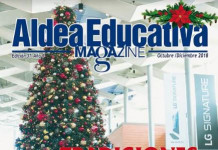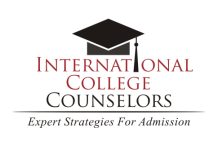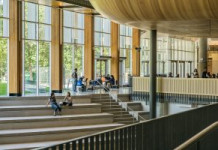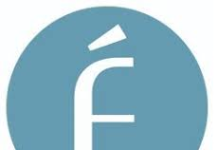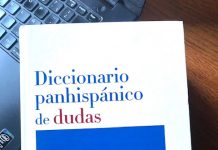
When you are a student with a disability, you may wonder if college is for you. You may have concerns about applying, finding resources, or succeeding. Don’t let your fears hold you back. Resources are available to help you pursue your dreams and your passion for higher education.
Applying to College
One of the biggest hurdles you may fear when you are considering higher education is the application process. The first obstacle you may think will trip you up is admissions testing. Whether you take the ACT, SAT, or other testing, the thought of testing can be daunting. This, however, is not the actual situation for admission testing. Admissions testing requires accommodations for people with disabilities. Accommodations for students with learning disabilities includes:
Extended SAT Time
You can request extended time to complete the tests if you have a disability. When you apply for accommodations, you need to specify what sections you need more time for and how much time you will need for the sections. If you do require extra time, you need to stay for the entire time of the accommodation.
Reading and Seeing
Students must state what accommodations they need, such as reading or seeing. Examples of reading and seeing accommodations are audio format, a reader, scribe, braille, large print text, or a magnifier.
Computer Use
Computer use for writing should be available to students who are unable to write without a word processor. Functions such as spell check, word prediction, and cut and paste will not be enabled during the test.
Longer or Extra Breaks
Usually, the ACT has one break of 10 minutes. The SAT has a 10-minute break and a 5-minute break. If these breaks are not long enough, test takers can request longer breaks or more frequent breaks. Some students can request breaks as needed to take care of medical issues. An example is a student who needs to test diabetic sugar levels.
Other Accommodations
Other accommodations may be available for students with learning disabilities, such as four-function calculators for students who have math disabilities. Some testing sites offer dedicated test sites, private testing rooms, and testing over several days.
Note that not all colleges and universities require the SAT or ACT to get into higher education. Look for a college or university that doesn’t take these admission tests if test-taking is an anxious experience for you.
Apply Early
When you are applying for college, remember to apply early. Applying early means you can gather your resources and complete the forms without having to rush at the last minute. In a rush to apply may mean you may forget critical information for the application form and not be accepted at your college of choice. Being late with your application also means that you won’t find a college that has programs for people with disabilities.
10 Universities with Great Resources for Students with Learning Disabilities
Many universities and colleges have resources for students with learning disabilities, such as assistive technology, tutoring, and extended exam times. The following are just a few of the schools with programs and resources for students with learning disabilities.
Adelphi University
Adelphi University has several programs for students with learning disabilities. Their Learning Resource Program helps students with A.D.H.D. For students with high-functioning autism or Asperger’s syndrome, they have a Social Training Center. The university has residential life and housing accommodations and assistive technology for students with learning disabilities. The fee-based Bridges to Adelphi program addresses many issues such as individual academic, social, and vocational support services for neurodiverse students.
American International College
The American International College has the Supportive Learning Services program for students with learning disabilities. The program features tutoring services for students with learning challenges and disabilities, but the program is open to all students. The tutoring services offer content-based tutoring, organization skills, study skills, and time management training. The program offers one-on-one tutoring. In addition to tutoring services, the American International College has the Center for Accessibility Services and Academic Accommodations (CASAA). The center offers academic and physical accommodations for students with accessibility challenges such as extended exam time and proctors with a special education background to monitor exams. The CASAA program is free but requires documentation under the federally mandated Americans with Disabilities Act.
Augsburg College
The Center for Learning and Accessible Student Services (CLASS) offers the services of disability specialists to help students determine their needs. Disability Specialists provide help with accommodations, individual support, and instruction in learning strategies. They help with time management, organizational skills, and assistance with course selection. The center features accommodations for alternative testing such as extended time and limited distraction. Assistive technology is available such as alternative format textbooks and course materials and notetaking support. In addition, housing accommodations are available. These programs are available for students with learning disabilities such as A.D.H.D., learning disabilities, and psychiatric disabilities. The center helps students who have blind/low vision, autism spectrum disorder, chronic illnesses, and other disabilities.
Bellevue College
Bellevue College’s Disability Resource Center has advocacy services, alternative testing, assistive technology, and more resources for students with learning disabilities. The college partners with the Center for Career Connections and R.I.S.E. Learning Institute to provide Neurodiversity Navigators for students with autism spectrum disorders for multiple support services.
Curry College
The Program for Advancement of Learning at Curry College helps students with A.D.H.D., learning differences, or other disability issues such as executive function needs. Its program offers psycho-educational assessments and psycho-educational as well as neuropsychological assessments. The center helps students assess their strengths and weaknesses, document their need for accommodations, and receive second opinion evaluations. They provide assistive technology and summer programs, as well as a multilingual students program for international students. Diagnostic teaching and tutoring services are available.
DePaul University
The Center for students with learning disabilities has accommodations for students, including adaptive equipment and assistive technology. They have course selection consultation for helping students with selecting classes and priority registration for early registration for students with learning disabilities. Sign language interpreting is available, as well as other assistive services.
Lesley University
The Threshold Program at Lesley University offers a non-degree post-secondary program for students with various learning, developmental, and intellectual abilities. This program also provides a certificate program and bridge programs to help people enter the working world. Threshold students participate in campus activities and live on campus. They have a curriculum focused on career training and independent living. Students take classes such as personal finance and a food lab to help them prepare for life. Specialized courses and internships are offered to prepare students for jobs. In the second year of the program, students can take undergraduate classes for credit or audit.
Lynn University
Lynn University’s Institute for Achievement and Learning has several support services for students with learning disabilities. Its programs include a Diagnostic Center for Education Assessment. At the center, students can access services such as academic coaching, assistive technology, and tutoring. The university offers support to students with academic accommodations such as temporary injury accommodations, housing accommodations such as a private room, and cafeteria accommodations. The university offers alternative testing environments, including extended test times and visual assistance aids such as reader, scribe, and computer access.
Manhattanville College
The Center for Student Accommodations supports students by developing accommodation plans, and the Higher Education Learning Program (HELP) has learning specialists who are trained to assist students with learning disabilities. For students with autism spectrum disorder and related diagnoses, the Pathways, and Connections (P.A.C.) program has career development, individual coaching, and peer mentoring resources and services.
University of Montana
The Mentoring Organization and Social Support for Autism Inclusion on Campus program has five core tenets. These tenets are direct services, executive functioning skills, social skills, and peer mentoring. Direct services include speech-language training to help students communicate. Executive functioning classes help students with planning skills for school and work. For social skills, students learn how to interact with their peers and others. The peer mentoring component is peer support from their classmates.
Preparing for College
Preparing for college involves identifying your strengths and pursuing those in high school. Some ways you can prepare for college are:
- Enrolling in a variety of courses such as English, science, technology, math, history, and other diverse classes.
- Taking those classes that will prepare you for your college of choice. Find college catalogs and see what classes the college or university offers.
- Working to strengthen your skills in reading, math, writing, and oral language.
- Expanding your current IEP plan to transition services at the college.
- Becoming proficient with assistive devices such as smartphones, computers, and the Internet.
- Developing study skills and learning strategies.
Scholarship Opportunities
Numerous scholarship opportunities exist for students with learning disabilities. Searching on the internet can help you find what you need for your specific disability. There are scholarships available for people with learning disabilities, those with physical disabilities, neurodiverse students, and more. Please check the website of the scholarships you are considering because eligibility, application dates, and scholarship amount may change.
Academy of Special Dreams Scholarship
Eligibility is for special needs applicants who have applied to and/or are accepted or are currently enrolled in a college or university, trade school, art school, or other degree-awarding program focused on art. Applications may be submitted at any time.
disABLEDperson, Inc. National Scholarship for College Students with Disabilities
For the disABLEDperson Scholarship, students must be enrolled in 2 or 4 years accredited college or university in America.
Lime Connect Pathways Scholarship for High School Seniors
Eligibility for this scholarship is for high school seniors with all types of disabilities. The award is merit-based.
Microsoft Disability Scholarship
Eligibility for this scholarship is as a college-bound current high school senior living with disabilities. Disabilities include visual, hearing, mobility, cognitive, speech, or other disabilities. To apply, you must have a 3.0 or above GPA, a passion for technology, and require financial assistance.
Study Tips
Studying is difficult when you don’t know where to begin. Some helpful tips for studying are organizing your space so you can find everything, starting your work early, so you don’t rush your work and feel frustrated, and planning your work, so you have a clear idea of what you need to do. Creating effective study routines is also essential to have a certain time of day to study in a quiet spot.
Success Tips
Support from other people is important when you are in college. Finding a learning coach or a tutor can help you over hurdles you face. Other success tips you may consider are understanding problems that frequently occur and seeking help for those problems. Inquiring about resources at your college for your problems is essential to have the tools you need to succeed.
Additional Resources
The following resources are also useful for navigating college applications:
American Association of People with Disabilities
American Association on Intellectual and Developmental Disabilities (AAIDD)
Association on Higher Education And Disability (AHEAD)
Learning Disabilities Association of America
The Association on Higher Education and Disability
Autism Resources
Autistic Self-Advocacy Network
U.S. Autism & Asperger Association
ADD/ADHD
Attention Deficit Disorder Association
Children & Adults with Attention-Deficit/Hyperactivity Disorder




